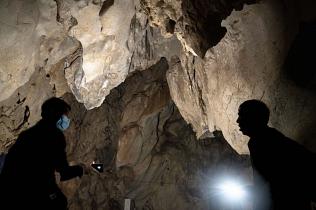International scientists and researchers call for more rigorous investigation into the origins of coronavirus
(Natural News) On April 7, a group of international scientists and researchers called for a more rigorous investigation into the origins of the Wuhan coronavirus (COVID-19). This came after China and the World Health Organization (WHO) released a report last week concluding that the virus most likely came from wildlife instead of a laboratory.
The joint study by China and the WHO said the likeliest transmission route for SARS-CoV-2, the virus that causes COVID-19, involved bats and other wildlife. It all but ruled out the possibility that it had leaked from a laboratory.
In an open letter, 24 scientists and researchers from Europe, the United States, Australia and Japan suggested steps to complete a more comprehensive investigation.
“Calling for a full investigation into the origins of the pandemic by the best available means is not intended to point fingers at any one country. Its purpose is to leave no stone unturned in seeking to understand how this catastrophe began, so we can prioritize efforts to address our greatest shortcomings for the benefit of all people and all nations,” the group stated in the letter.
The group claimed the study’s conclusions were based on unpublished Chinese research, while records and biological samples critical to the investigation “remain inaccessible.” The group also requested a probe involving biosecurity and biosafety experts to study the origins of COVID-19, which was first reported in Wuhan, China in 2019.
Jamie Metzl, a senior fellow at Atlantic Council and a signatory in the letter, said the renewed calls for a more thorough investigation reflected the need for greater monitoring of and restrictions on what viruses can be studied in labs around the world. “This is not about ganging up on China,” he said.
Metzl believes the joint study was tainted by politics from the get-go. “Their starting point was, let’s have as much compromise as is required to get some minimal cooperation from China,” Metzl said.
Responding to the letter on Thursday, April 8, China’s Ministry of Foreign Affairs Information Department Deputy Director Zhao Lijian said its “purpose was self-evident” and that countries like the United States, not China, were guilty of politicizing the inquiry into COVID-19’s origins.
“They insist on politicizing the issue of traceability, damaging and disrupting China’s cooperation with the WHO, discrediting China and publicly challenging the independence and scientific conclusions of scientists,” he said.
China-WHO study: “Extremely unlikely” that the virus escaped from a lab
Wuhan is home to several high-security labs, including China’s foremost zoonotic disease research center – the Wuhan Institute of Virology. Rumors that the virus escaped from there have circulated since the start of the pandemic.
But the China-WHO study concluded it was most likely that Sars-CoV-2 passed from bats via an “intermediate animal host” to humans, before sparking an “explosive outbreak” in Wuhan. It said that, while possible, it is “extremely unlikely” that the virus escaped from a lab.
The investigative team of 34 Chinese and international scientists also said that it remains “possible” the virus entered Wuhan through frozen food, imported from another area of China or even from overseas.
WHO head criticizes China for withholding information
Dr. Tedros Adhanom Ghebreyesus, director general of the WHO, criticized China for withholding information on the origins of the pandemic and warned that the investigation into a potential laboratory leak was “not extensive enough.”
In a statement to member states, Ghebreyesus said investigators had reported difficulties in “accessing raw data” and “would benefit from full access to data including biological samples from at least September 2019.” He added that all hypotheses for how the virus emerged “remain on the table.”
According to Ghebreyesus, the report is a “very important beginning.”
“We have not yet found the source of the virus and we must continue to follow the science and leave no stone unturned as we do,” he said. “Finding the origin of a virus takes time and we owe it to the world to find the source so we can collectively take steps to reduce the risk of this happening again. No single research trip can provide all the answers.”
Ghebreyesus also called for more studies to understand the earliest human cases traced at the Huanan market in Wuhan.
“The team has confirmed that there was widespread contamination with Sars-CoV-2 at the Huanan market in Wuhan, but could not determine the source of this contamination,” he said.
Comments
There are 0 comments on this post






